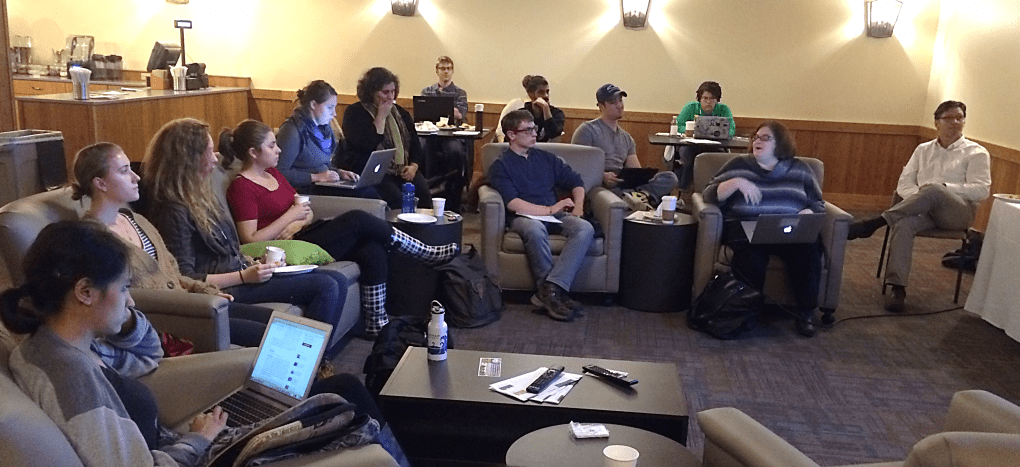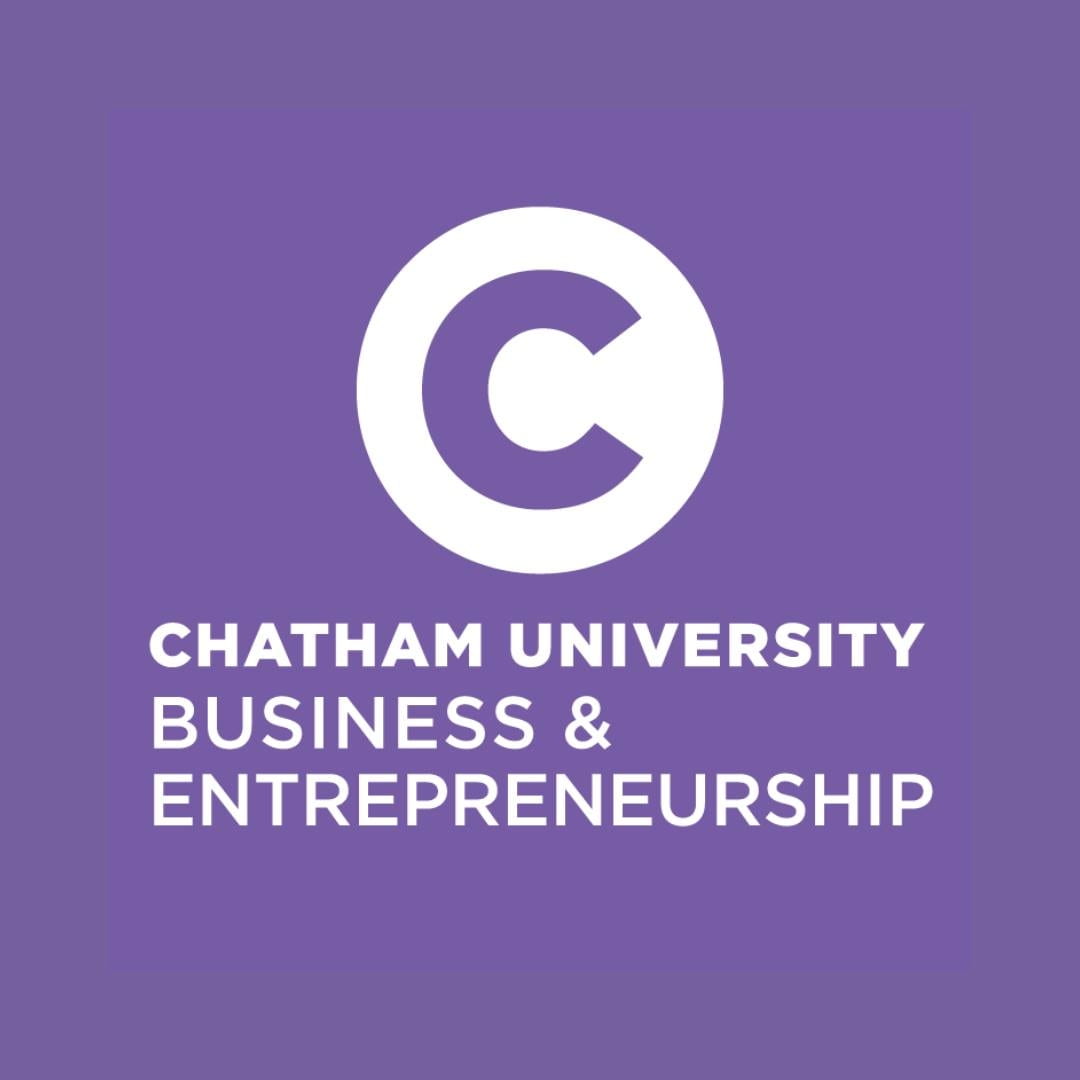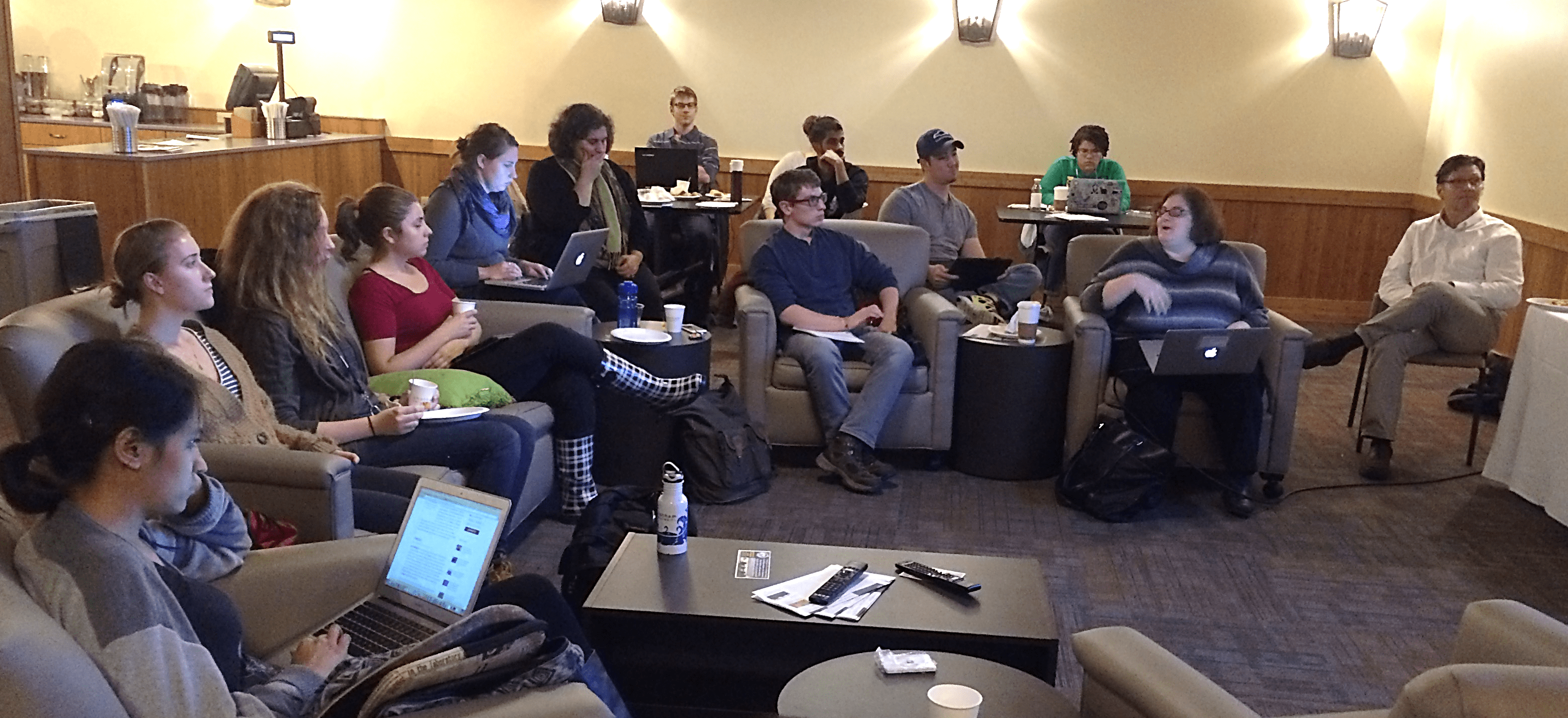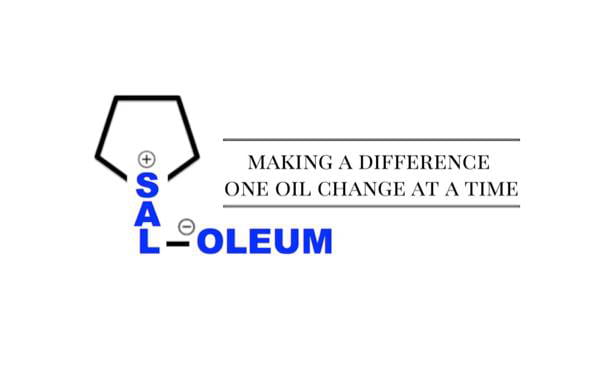For the first time, a team from Chatham University participated in The Department of Energy’s CleanTech University Prize Competition for the Allegheny region. The goal of this competition is to promote innovative clean energy technology start-ups. The winning team receives a $50,000 prize and competes for additional prizes at the national level.
As part of a Net Impact Chatham University weekly chapter meeting, Dr. Deborah Stein from Carnegie Mellon University explained the judging criteria and best practices for the CleanTech competition. Dr. Stein works in the Engineering and Public Policy Department in the Scott Institute for Energy Innovation at Carnegie Mellon University, which is where the competition was hosted March 14-18th, 2016.
Dr. Stein encouraged students to participate, “it is the experiences that make you different [from the rest]. It is not just the degree that you have.” She explained that participating in such competitions will allow students to gain “technical, legal, and business mentoring as well as educational entrepreneurship and real-world feedback, all of which is valuable no matter what kind of employment that you choose to pursue after Chatham.”

Dr. Tom Macagno, the faculty advisor for Net Impact, was excited for students to get involved. “Chatham will focus on our strengths, which include the Eden Hall Campus as well as student talent from sustainability, green chemistry and business departments.”

The Chatham team, Saloleum (meaning salt-oil), was one of the finalists in the CleanTech Competition held at CMU. The team won $10,000 to start their business. They are investigating the use of ionic liquid lubricants to eliminate a long identified inefficiency in HVAC systems called “oil carryover”. The judges were impressed with Saloleum’s transformational idea which offered a solution for reducing HVAC energy use 20-30%.
Saloleum’s principals are Randy Yakal, Christine Lambiase and Derrick Ward, all studying Green Chemistry. Their efforts were supported by Cierra Snyder and Tom Hall from the Falk School of Sustainability. The project started in Fall 2015.
The objectives of the Department of Energy sponsored contest were to catalyze clean energy technology start-ups, support educational opportunities and encourage clean energy student entrepreneurs. The judging was kicked off after a key note address from Department of Energy Deputy Secretary Elizabeth Sherwood-Randal.
The Chatham team’s efforts are impressive. They held their own against a very competitive field which included:
- Carnegie Mellon University
- Case Western Reserve University
- Drexel University
- Goucher College
- Johns Hopkins University
- Penn State University
- University of Pittsburgh
- Robert Morris University
- University of Maryland-College Park
- University of Pennsylvania
Chatham University’s Master of Sustainability (MSUS) program, in partnership with Chatham’s MBA program, has developed a dual degree program that prepares graduates for sustainability management and leadership positions across all sectors including business, government, and nongovernmental organizations. Green Chemistry students attend MSUS and MBA classes as part of their coursework. These graduate programs support the efforts and celebrate the successes of their peer programs at Chatham!
Read more about Saloleum’s success in the CleanTech competition here.



